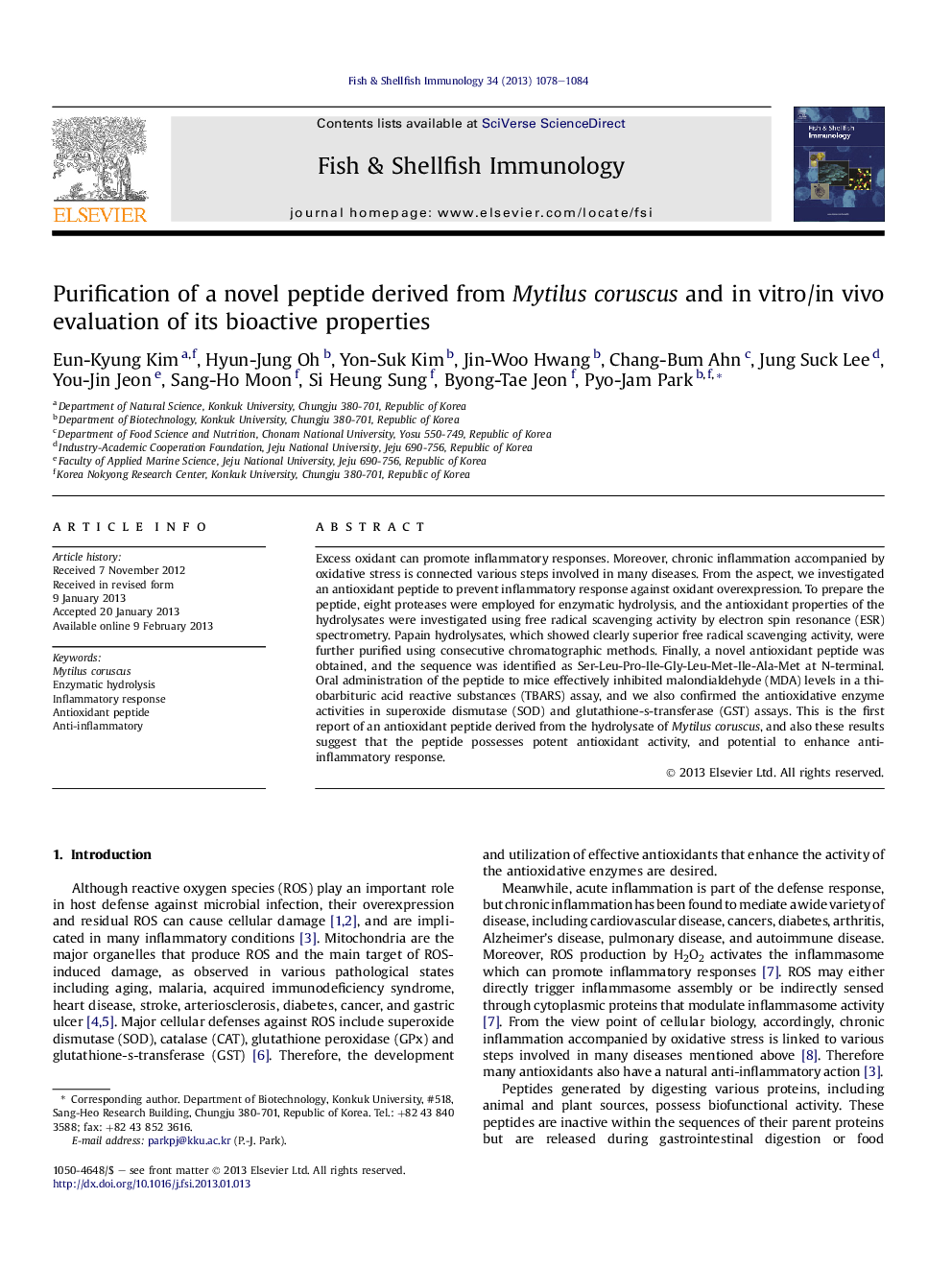| Article ID | Journal | Published Year | Pages | File Type |
|---|---|---|---|---|
| 2431850 | Fish & Shellfish Immunology | 2013 | 7 Pages |
Excess oxidant can promote inflammatory responses. Moreover, chronic inflammation accompanied by oxidative stress is connected various steps involved in many diseases. From the aspect, we investigated an antioxidant peptide to prevent inflammatory response against oxidant overexpression. To prepare the peptide, eight proteases were employed for enzymatic hydrolysis, and the antioxidant properties of the hydrolysates were investigated using free radical scavenging activity by electron spin resonance (ESR) spectrometry. Papain hydrolysates, which showed clearly superior free radical scavenging activity, were further purified using consecutive chromatographic methods. Finally, a novel antioxidant peptide was obtained, and the sequence was identified as Ser-Leu-Pro-Ile-Gly-Leu-Met-Ile-Ala-Met at N-terminal. Oral administration of the peptide to mice effectively inhibited malondialdehyde (MDA) levels in a thiobarbituric acid reactive substances (TBARS) assay, and we also confirmed the antioxidative enzyme activities in superoxide dismutase (SOD) and glutathione-s-transferase (GST) assays. This is the first report of an antioxidant peptide derived from the hydrolysate of Mytilus coruscus, and also these results suggest that the peptide possesses potent antioxidant activity, and potential to enhance anti-inflammatory response.
► Chronic inflammation accompanied by oxidative stress is connected various steps involved in many diseases. ► A novel antioxidant peptide was purified from M. coruscus. ► Oral administration of the peptide to mice effectively inhibited malondialdehyde (MDA) levels. ► The peptide regulated the enzyme activity such as SOD and GST in vivo. ► The peptide possesses potent antioxidant activity, and can enhance anti-inflammatory response.
